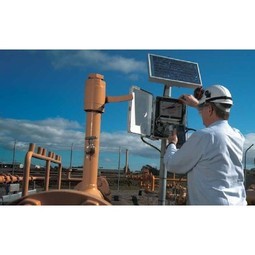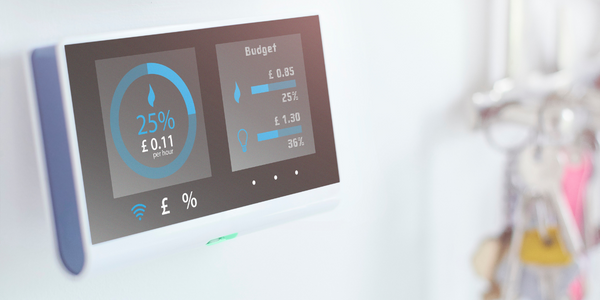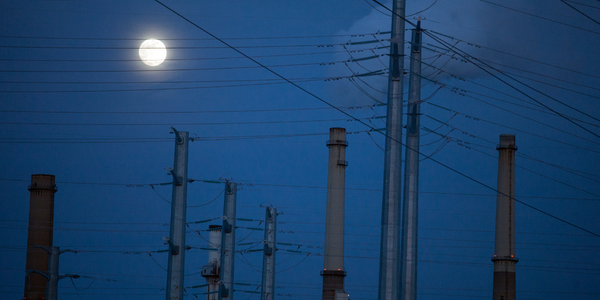公司规模
Large Corporate
地区
- America
国家
- United States
产品
- nGeniusONE Service Assurance platform
- nGeniusONE Global Server
- InfiniStream Appliances
- nGenius for Flows
- nGenius Collectors
技术栈
- Adaptive Service Intelligence technology
实施规模
- Enterprise-wide Deployment
影响指标
- Customer Satisfaction
- Productivity Improvements
技术
- 应用基础设施与中间件 - API 集成与管理
适用行业
- 公用事业
用例
- 实时定位系统 (RTLS)
- 远程资产管理
服务
- 系统集成
关于客户
该客户是美国南部最大的能源公司之一,为住宅和商业客户提供电力服务。该公司在飓风频繁袭击的地区开展业务,这使得电力服务的交付更加复杂。这家能源公司的母公司是全球风能、太阳能和核能领域的顶级电力供应商。该公司专注于提供高质量的客户服务,通过 IT 技术举措和进步(包括引入智能电表)来改变服务交付方式。
挑战
这家能源公司在多个数据中心和数百个远程分支机构面临着严重的服务保障问题。面向客户的网络服务(如在线访问停电地图、账单支付历史记录和智能电表数据)的降级和减速是无法接受的。无法快速识别与公司客户资源管理 (CRM) 系统相关的服务可用性问题,无法精确定位客户门户中用于交互式电源控制、在线账单支付和停电报告的减速,导致客户满意度面临风险。此外,如果公司无法使用其跟踪车队车辆的应用程序来有效响应维修和升级订单,则会导致公司在人员配备、服务恢复和车辆维护方面面临更高的费用。
解决方案
为了解决能源公司的服务保障问题,IT 部门求助于 NETSCOUT 提供实时服务监控。nGeniusONE 服务保障平台采用 Adaptive Service Intelligence™ (ASI) 技术,结合数据中心战略性部署的 InfiniStream 设备以及公司数百个远程公司办事处的 nGenius for Flows with Collectors,使 IT 部门能够快速发现性能问题的根源。nGeniusONE 的深度情报迅速揭示了几个问题,例如远程站点电路问题、无响应的 e-Web 服务器以及影响 VoIP 服务的 SIP 可用性问题。无论使用多少不同供应商的设备或支持交付链各个部分的第三方合作伙伴数量如何,nGeniusONE 解决方案都能提供解决问题所需的分析。
运营影响

Case Study missing?
Start adding your own!
Register with your work email and create a new case study profile for your business.
相关案例.

Case Study
IoT Solutions for Smart City | Internet of Things Case Study
There were several challenges faced: It is challenging to build an appliance that can withstand a wide range of voltage fluctuations from as low at 90v to as high as 320v. Since the device would be installed in remote locations, its resilience was of paramount importance. The device would have to deal with poor network coverage and have the ability to store and re-transmit data if networks were not available, which is often the case in rural India. The device could store up to 30 days of data.

Case Study
Automation of the Oguz-Gabala-Baku water pipeline, Azerbaijan
The Oguz-Gabala-Baku water pipeline project dates back to plans from the 1970’s. Baku’s growth was historically driven by the booming oil industry and required the import of drinking water from outside of the city. Before the construction of the pipeline, some 60 percent of the city’s households received water for only a few hours daily. After completion of the project, 75 percent of the two million Baku residents are now served around the clock with potable water, based on World Health Organization (WHO) standards. The 262-kilometer pipeline requires no pumping station, but uses the altitude differences between the Caucasian mountains and the capital to supply 432,000 m³/d to the Ceyranbatan water reservoir. To the people of Baku, the pipeline is “the most important project not only in 2010, but of the last 20 years.”

Case Study
GPRS Mobile Network for Smart Metering
Around the world, the electricity supply industry is turning to ‘smart’ meters to lower costs, reduce emissions and improve the management of customer supplies. Smart meters collect detailed consumption information and using this feedback consumers can better understand their energy usage which in turn enables them to modify their consumption to save money and help to cut carbon emissions. A smart meter can be defined in many ways, but generally includes an element of two-way communication between the household meter and the utility provider to efficiently collect detailed energy usage data. Some implementations include consumer feedback beyond the energy bill to include online web data, SMS text messages or an information display in consumers’ premises. Providing a cost-effective, reliable communications mechanism is one of the most challenging aspects of a smart meter implementation. In New Zealand, the utilities have embraced smart metering and designed cost effective ways for it to be implemented. The New Zealand government has encouraged such a move to smart metering by ensuring the energy legislation is consistent with the delivery of benefits to the consumer while allowing innovation in this area. On the ground, AMS is a leader in the deployment of smart metering and associated services. Several of New Zealand’s energy retailers were looking for smart metering services for their residential and small business customers which will eventually account for over 500,000 meters when the multi-year national deployment program is concluded. To respond to these requirements, AMS needed to put together a solution that included data communications between each meter and the central data collection point and the solution proposed by Vodafone satisfied that requirement.

Case Study
NB-IoT connected smart meters to improve gas metering in Shenzhen
Shenzhen Gas has a large fleet of existing gas meters, which are installed in a variety of hard to reach locations, such as indoors and underground, meaning that existing communications networks have struggled to maintain connectivity with all meters. The meter success rate is low, data transmissions are so far unstable and power consumption is too high. Against this background, Shenzhen Gas, China Telecom, Huawei, and Goldcard have jointly trialed NB-IoT gas meters to try and solve some of the challenges that the industry faces with today’s smart gas meters.

Case Study
OneWireless Enabled Performance Guarantee Test
Tata Power's power generation equipment OEMs (M/s BHEL) is required to provide all of the instrumentation and measurement devices for conducting performance guarantee and performance evaluation tests. M/s BHEL faced a number of specific challenges in conducting PG tests: employing high-accuracy digital communications for instrumentation, shortening setup and dismantling time, reducing hardware required, making portable instrument setup, avoiding temporary cabling work and the material waste costs

Case Study
British Gas Modernizes its Operations with Innovative Smart Metering Deployment
The UK government has mandated that smart meters are rolled out as standard across Great Britain by end of 2020, and this roll-out is estimated to create £14 billion in net benefits to the UK in consumer energy savings and lower energy generation demand, according to the Oxford Economics report, “The Value of Smart Metering to Great Britain.” While smart-metering systems have been deployed in many countries, the roll-out in Great Britain is unique because it is led by energy retailers, who have responsibility for the Electricity and Gas meters. The decision to have a retailer-led roll out was made by DECC (Department of Energy and Climate Change) to improve customer experience and drive consumer benefits. It has also led to some unique system-level requirements to support the unique local regulatory model.



